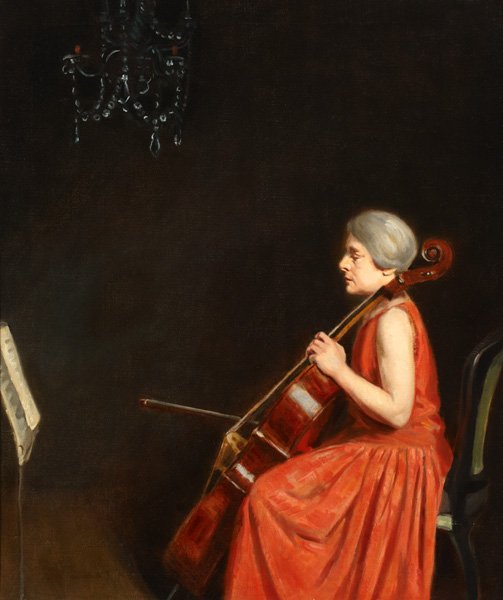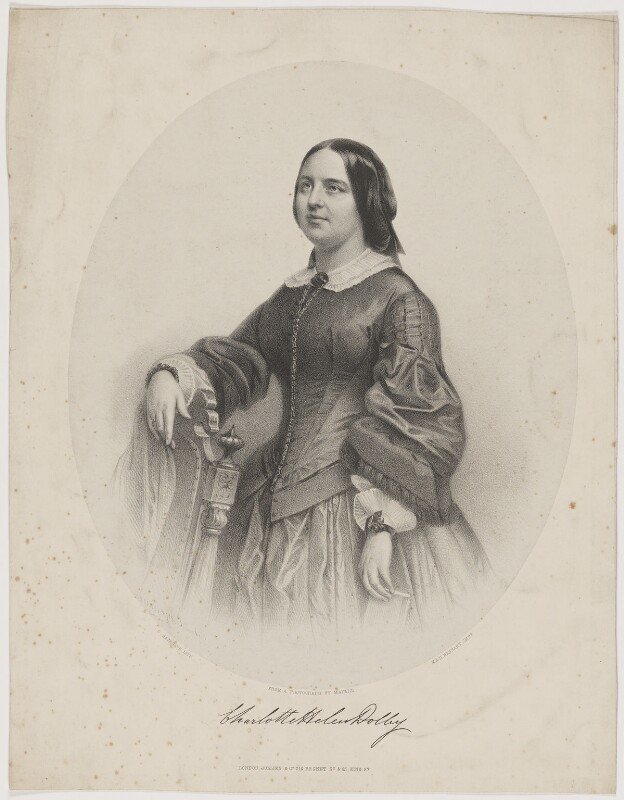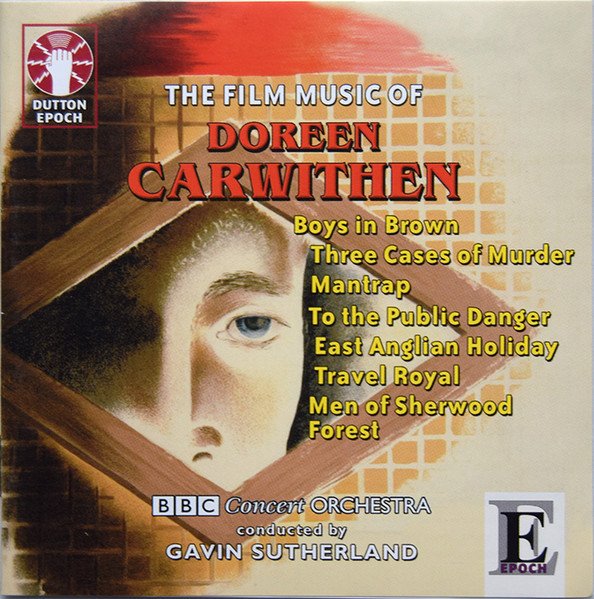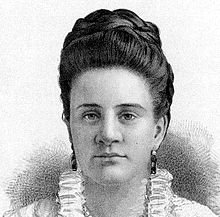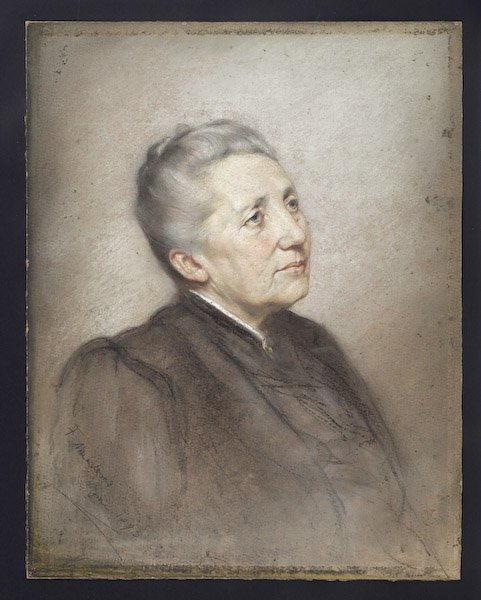The New Colossus: Emma Lazarus
“Not like the brazen giant of Greek fame,
With conquering limbs astride from land to land;
Here at our sea-washed, sunset gates shall stand
A mighty woman with a torch, whose flame
Is the imprisoned lightning, and her name
Mother of Exiles. From her beacon-hand
Glows world-wide welcome; her mild eyes command
The air-bridged harbor that twin cities frame.
“Keep, ancient lands, your storied pomp!” cries she
With silent lips. “Give me your tired, your poor,
Your huddled masses yearning to breathe free,
The wretched refuse of your teeming shore.
Send these, the homeless, tempest-tost to me,
I lift my lamp beside the golden door!””
Twenty Gallons of Sleep: Agnes Storrie
“Measure me out from the fathomless tun
That somewhere or other you keep
In your vasty cellars, O wealthy one,
Twenty gallons of sleep.
Twenty gallons of balmy sleep,
Dreamless, and deep, and mild,
Of the excellent brand you used to keep
When I was a little child.
I’ve tasted of all your vaunted stock,
Your clarets and ports of Spain,
The liquid gold of your famous hock,
And your matchless dry champagne.
Of your rich muscats and your sherries fine,
I’ve drunk both well and deep;
Then measure me out, O merchant mine,
Twenty gallons of sleep.
Twenty gallons of slumber soft,
Of the innocent, baby kind,
When the angels flutter their wings aloft
And the pillow with down is lined.
I have drawn the corks, and drained the lees,
Of every vintage pressed;
If I’ve felt the sting of my honey bees,
I’ve taken it with the rest.
I have lived my life, and I’ll not repine;
As I sowed I was bound to reap;
Then measure me out, O merchant mine,
Twenty gallons of sleep.”
A Portrait: Edith Nesbit
“Like the sway of the silver birch in the breeze of dawn
Is her dainty way;
Like the gray of a twilight sky or a starlit lawn
Are her eyes of gray;
Like the clouds in their moving white
Is her breast’s soft stir;
And white as the moon and bright
Is the soul of her.
Like murmur of woods in spring ere the leaves be green,
Like the voice of a bird
That sings by a stream that sings through the night unseen,
So her voice is heard.
And the secret her eyes withhold
In my soul abides,
For white as the moon and cold
Is the heart she hides.”
Song: Christina Rossetti
“When I am dead, my dearest,
Sing no sad songs for me;
Plant thou no roses at my head,
Nor shady cypress tree:
Be the green grass above me
With showers and dewdrops wet;
And if thou wilt, remember,
And if thou wilt, forget.
I shall not see the shadows,
I shall not feel the rain;
I shall not hear the nightingale
Sing on, as if in pain:
And dreaming through the twilight
That doth not rise nor set,
Haply I may remember,
And haply may forget.”
Adam and Eve: Marjorie Pickthall
“When the first dark had fallen around them
And the leaves were weary of praise,
In the clear silence Beauty found them
And shewed them all her ways.
In the high noon of the heavenly garden
Where the angels sunned with the birds,
Beauty, before their hearts could harden,
Had taught them heavenly words.
When they fled in the burning weather
And nothing dawned but a dream,
Beauty fasted their hands together
And cooled them at her stream.
And when day wearied and night grew stronger,
And they slept as the beautiful must,
Then she bided a little longer,
And blossomed from their dust.”
In Betty's Garden: Matilda Aston
“When Betty makes a garden,
With shrubs and bushes planned,
I’d like to be upon the spot,
And lend a helping hand –
For when the Spring and Summer
Call forth the blossoms there,
I know in Betty’s garden
I’d surely have a share
She’d give me showery wattle,
As gold as dawning day,
And Crimson Rambler roses warm,
And cool and snowy May;
Long chains of bright Laburnum,
And butter-coloured Broom,
And thus would Betty’s garden
Make sunshine in my room.
If I were Betty’s neighbour,
And full her garden grown,
I’d sniff the breathing odours rich
In through my window blown,
From Loquat flower and Almond,
And Oleander tall,
From Laurel and from Lilac,
The dearest of them all.
Yes, straight from Betty’s garden
She’d bring me Lilac flower,
In mauve, like stately lady
In old-time lady’s bower;
And wreaths of Honeysuckle
She’d pilfer from the bee,
And Jasmine from the trellis,
To share them all with me.
When Betty makes a garden
For shrubs and bushes planned,
I’d like to be Godmother there,
And name the lovely band-
Thus I in Betty’s garden
Would have a rightful share,
And in my quiet chamber
I’d breathe its incense rare.”
Starlight at Sea: Katharine Lee Bates
“Over the murmurous choral of dim waves
The constellations glow against the soft
Ethereal dusk, —forever fair, aloft,
Serene, while man climbs painfully from caves
To cities, clamorous cities, life that raves
Like surf against the rocks. It is not oft
Our cities glimpse the stars, their luster scoffed
Away by low, hard glitter that outbraves
Night’s blessing of the dark. But here upon
Mid-ocean, all whose muffled voices ring
A rapture lost to our vexed human wills,
We see the primal radiance that shone
On chaos, —see the young God shepherding
His gleaming flocks on the empurpled hills.”
The Wild Ride: Louise Imogen Guiney
“I hear in my heart, I hear in its ominous pulses,
All day, on the road, the hoofs of invisible horses,
All night, from their stalls, the importunate pawing and neighing.
Let cowards and laggards fall back! But alert to the saddle
Weatherworn and abreast, go men of our galloping legion,
With a stirrup-cup each to the lily of women that loves him.
The trail is through dolor and dread, over crags and morasses;
There are shapes by the way, there are things that appal or entice us:
What odds? We are Knights of the Grail, we are vowed to the riding.
Thought’s self is a vanishing wing, and joy is a cobweb,
And friendship a flower in the dust, and glory a sunbeam:
Not here is our prize, nor, alas! after these our pursuing.
A dipping of plumes, a tear, a shake of the bridle,
A passing salute to this world and her pitiful beauty;
We hurry with never a word in the track of our fathers.
I hear in my heart, I hear in its ominous pulses,
All day, on the road, the hoofs of invisible horses,
All night, from their stalls, the importunate pawing and neighing.
We spur to a land of no name, outracing the storm-wind;
We leap to the infinite dark like sparks from the anvil.
Thou leadest, O God! All’s well with Thy troopers that follow.”
Song: Amelia Opie
“I am wearing away like the snow in the sun,
I am wearing away from the pain in my heart;
But ne’er shall he know, who my peace has undone,
How bitter, how lasting, how deep is my smart.
I know he would pity—so kind is his soul,
To him my affliction would agony be;
But never, while I can my feelings control,
The youth whom I love shall know sorrow through me.
Though longing to weep, in his presence I’ll smile,
Call the flush of my cheek the pure crimson of health;
His fears for my peace by my song I’ll beguile,
Nor venture to gaze on his eyes but by stealth.
For conscious I am, by my glance is exprest
The passion that faithful as hopeless will be,
And he, whom, alas! I can ne’er render blest,
Shall never, no never, know sorrow through me.”
The Human Temple: Dinah Craik
“The Temple in Darkness
Darkness broods upon the temple,
Glooms along the lonely aisles,
Fills up all the orient window,
Whence, like little children’s wiles,
Shadows—purple, azure, golden—
Broke upon the floor in smiles.
From the great heart of the organ
Bursts no voice of chant or psalm;
All the air, by music-pulses
Stirred no more, is deathly calm;
And no precious incense rising,
Falls, like good men’s prayer, in balm.
Not a sound of living footstep
Echoes on the marble floor;
Not a sigh of stranger passing
Pierces through the closèd door;
Quenched the light upon the altar:
Where the priest stood, none stands more.
Lord, why hast Thou left Thy temple
Scorned of man, disowned by Thee!
Rather let Thy right hand crush it,
None its desolation see!
List—‘He who the temple builded
Doth His will there. Let it be!’
A Light in the Temple
Lo, a light within the temple!
Whence it cometh no man knows;
Barred the doors: the night-black windows
Stand apart in solemn rows,
All without seems gloom eternal,
Yet the glimmer comes and goes—
As if silent-footed angels
Through the dim aisles wandered fair,
Only traced amid the darkness,
By the glory in their hair,
Till at the forsaken altar
They all met, and praised God there.
Now the light grows—fuller, clearer;
Hark, the organ ’gins to sound.
Faint, like broken spirit crying
Unto Heaven from the ground;
While the chorus of the angels
Mingles everywhere around.
See, the altar shines all radiant,
Though no mortal priest there stands,
And no earthly congregation
Worships with uplifted hands:
Yet they gather, slow and saintly,
In innumerable bands.
And the chant celestial rises
Where the human prayers have ceased:
No tear-sacrifice is offered,
For all anguish is appeased,
Through its night of desolation,
To His temple comes the Priest.
”
Love and Friendship: Emily Brontë
“Love is like the wild rose-briar,
Friendship like the holly-tree—
The holly is dark when the rose-briar blooms
But which will bloom most constantly?
The wild rose-briar is sweet in spring,
Its summer blossoms scent the air;
Yet wait till winter comes again
And who will call the wild-briar fair?
Then scorn the silly rose-wreath now
And deck thee with the holly’s sheen,
That when December blights thy brow
He still may leave thy garland green.”
The Well o' The World's End: Ethna Carbery
“Beyond the four seas of Eire, beyond the sunset’s rim,
It lies half-forgot, in a valley deep and dim;
Like a star of fire from the skies’ gold tire,
And whoso drinks the nine drops shall win his heart’s desire–
At the Well o’ the World’s End.
What go ye seeking, seeking, seeking,
O girl white-bosomed, O girl fair and young?
”I seek the Well-water, the cool Well-water,
That my love may have love for me ever on his tongue.”
What go ye seeking, seeking, seeking,
O lad of the dreaming eyes, slender lad and tall?
”I seek the Well-water, the cool Well-water,
That the cailín I love best may love me best of all.”
What go ye seeking, seeking, seeking,
O mother, with your little babe folded on your arm?
”I seek the Well-water, the cool Well-water,
That nine drops upon his lips may shield my child from harm.”
What go ye seeking, seeking, seeking,
O gray head, long weary of the vigil that ye keep?
”I seek the Well-water, the cool Well-water
That nigh it I may rest awhile, and after fall asleep.”
”
Song: Helen Dudley
“A few more windy days
Must come and go their ways,
And we will walk
My love and I
Beneath the amber-dripping boughs.
Then on the stars we’ll tread,
On purple stars and red,
And wonder why
The while we talk
Men sing so much of broken vows.”
The Description of Cooke-ham: Emilia Lanier
“Farewell (sweet Cooke-ham) where I first obtained
Grace from that grace where perfect grace remained;
And where the muses gave their full consent,
I should have power the virtuous to content;
Where princely palace willed me to indite,
The sacred story of the soul’s delight.
Farewell (sweet place) where virtue then did rest,
And all delights did harbor in her breast;
Never shall my sad eyes again behold
Those pleasures which my thoughts did then unfold.
Yet you (great Lady) Mistress of that place,
From whose desires did spring this work of grace;
Vouchsafe to think upon those pleasures past,
As fleeting worldly joys that could not last,
Or, as dim shadows of celestial pleasures,
Which are desired above all earthly treasures.
Oh how (methought) against you thither came,
Each part did seem some new delight to frame!
The house received all ornaments to grace it,
And would endure no foulness to deface it.
And walks put on their summer liveries,
And all things else did hold like similes.
The trees with leaves, with fruits, with flowers clad,
Embraced each other, seeming to be glad,
Turning themselves to beauteous Canopies,
To shade the bright sun from your brighter eyes;
The crystal streams with silver spangles graced,
While by the glorious sun they were embraced;
The little birds in chirping notes did sing,
To entertain both you and that sweet spring.
And Philomela with her sundry lays,
Both you and that delightful place did praise.
Oh how me thought each plant, each flower, each tree
Set forth their beauties then to welcome thee!
The very hills right humbly did descend,
When you to tread on them did intend.
And as you set your feet, they still did rise,
Glad that they could receive so rich a prize.
The gentle winds did take delight to be
Among those woods that were so graced by thee,
And in sad murmur uttered pleasing sound,
That pleasure in that place might more abound.
The swelling banks delivered all their pride
When such a Phoenix once they had espied.
Each arbor, bank, each seat, each stately tree,
Thought themselves honored in supporting thee;
The pretty birds would oft come to attend thee,
Yet fly away for fear they should offend thee;
The little creatures in the burrough by
Would come abroad to sport them in your eye,
Yet fearful of the bow in your fair hand.
Would run away when you did make a stand.
Now let me come unto that stately tree,
Wherein such goodly prospects you did see;
That oak that did in height his fellows pass,
As much as lofty trees, low growing grass,
Much like a comely cedar straight and tall,
Whose beauteous stature far exceeded all.
How often did you visit this fair tree,
Which seeming joyful in receiving thee,
Would like a palm tree spread his arms abroad,
Desirous that you there should make abode;
Whose fair green leaves much like a comely veil,
Defended Phoebus when he would assail;
Whose pleasing boughs did yield a cool fresh air,
Joying his happiness when you were there.
Where being seated, you might plainly see
Hills, vales, and woods, as if on bended knee
They had appeared, your honor to salute,
Or to prefer some strange unlooked-for suit;
All interlaced with brooks and crystal springs,
A prospect fit to please the eyes of kings.
And thirteen shires appeared all in your sight,
Europe could not afford much more delight.
What was there then but gave you all content,
While you the time in meditation spent
Of their Creator’s power, which there you saw,
In all his creatures held a perfect law;
And in their beauties did you plain descry
His beauty, wisdom, grace, love, majesty.
In these sweet woods how often did you walk,
With Christ and his Apostles there to talk;
Placing his holy Writ in some fair tree
To meditate what you therein did see.
With Moses you did mount his holy hill
To know his pleasure, and perform his will.
With lowly David you did often sing
His holy hymns to Heaven’s eternal King.
And in sweet music did your soul delight
To sound his praises, morning, noon, and night.
With blessed Joseph you did often feed
Your pined brethren, when they stood in need.
And that sweet Lady sprung from Clifford’s race,
Of noble Bedford’s blood, fair stem of grace,
To honorable Dorset now espoused,
In whose fair breast true virtue then was housed,
Oh what delight did my weak spirits find
In those pure parts of her well framèd mind.
And yet it grieves me that I cannot be
Near unto her, whose virtues did agree
With those fair ornaments of outward beauty,
Which did enforce from all both love and duty.
Unconstant Fortune, thou art most to blame,
Who casts us down into so low a frame
Where our great friends we cannot daily see,
So great a difference is there in degree.
Many are placed in those orbs of state,
Partners in honor, so ordained by Fate,
Nearer in show, yet farther off in love,
In which, the lowest always are above.
But whither am I carried in conceit,
My wit too weak to conster of the great.
Why not? although we are but born of earth,
We may behold the heavens, despising death;
And loving heaven that is so far above,
May in the end vouchsafe us entire love.
Therefore sweet memory do thou retain
Those pleasures past, which will not turn again:
Remember beauteous Dorset’s former sports,
So far from being touched by ill reports,
Wherein myself did always bear a part,
While reverend love presented my true heart.
Those recreations let me bear in mind,
Which her sweet youth and noble thoughts did find,
Whereof deprived, I evermore must grieve,
Hating blind Fortune, careless to relieve,
And you sweet Cooke-ham, whom these ladies leave,
I now must tell the grief you did conceive
At their departure, when they went away,
How everything retained a sad dismay.
Nay long before, when once an inkling came,
Methought each thing did unto sorrow frame:
The trees that were so glorious in our view,
Forsook both flowers and fruit, when once they knew
Of your depart, their very leaves did wither,
Changing their colors as they grew together.
But when they saw this had no power to stay you,
They often wept, though, speechless, could not pray you,
Letting their tears in your fair bosoms fall,
As if they said, Why will ye leave us all?
This being vain, they cast their leaves away
Hoping that pity would have made you stay:
Their frozen tops, like age’s hoary hairs,
Shows their disasters, languishing in fears.
A swarthy riveled rind all over spread,
Their dying bodies half alive, half dead.
But your occasions called you so away
That nothing there had power to make you stay.
Yet did I see a noble grateful mind
Requiting each according to their kind,
Forgetting not to turn and take your leave
Of these sad creatures, powerless to receive
Your favor, when with grief you did depart,
Placing their former pleasures in your heart,
Giving great charge to noble memory
There to preserve their love continually.
But specially the love of that fair tree,
That first and last you did vouchsafe to see,
In which it pleased you oft to take the air
With noble Dorset, then a virgin fair,
Where many a learned book was read and scanned,
To this fair tree, taking me by the hand,
You did repeat the pleasures which had passed,
Seeming to grieve they could no longer last.
And with a chaste, yet loving kiss took leave,
Of which sweet kiss I did it soon bereave,
Scorning a senseless creature should possess
So rare a favor, so great happiness.
No other kiss it could receive from me,
For fear to give back what it took of thee,
So I ungrateful creature did deceive it
Of that which you in love vouchsafed to leave it.
And though it oft had given me much content,
Yet this great wrong I never could repent;
But of the happiest made it most forlorn,
To show that nothing’s free from Fortune’s scorne,
While all the rest with this most beauteous tree
Made their sad consort sorrow’s harmony.
The flowers that on the banks and walks did grow,
Crept in the ground, the grass did weep for woe.
The winds and waters seemed to chide together
Because you went away they knew not whither;
And those sweet brooks that ran so fair and clear,
With grief and trouble wrinkled did appear.
Those pretty birds that wonted were to sing,
Now neither sing, nor chirp, nor use their wing,
But with their tender feet on some bare spray,
Warble forth sorrow, and their own dismay.
Fair Philomela leaves her mournful ditty,
Drowned in deep sleep, yet can procure no pity.
Each arbor, bank, each seat, each stately tree
Looks bare and desolate now for want of thee,
Turning green tresses into frosty gray,
While in cold grief they wither all away.
The sun grew weak, his beams no comfort gave,
While all green things did make the earth their grave.
Each brier, each bramble, when you went away
Caught fast your clothes, thinking to make you stay;
Delightful Echo wonted to reply
To our last words, did now for sorrow die;
The house cast off each garment that might grace it,
Putting on dust and cobwebs to deface it.
All desolation then there did appear,
When you were going whom they held so dear.
This last farewell to Cooke-ham here I give,
When I am dead thy name in this may live,
Wherein I have performed her noble hest
Whose virtues lodge in my unworthy breast,
And ever shall, so long as life remains,
Tying my life to her by those rich chains.”
On Imagination: Phillis Wheatley
“Thy various works, imperial queen, we see,
How bright their forms! how deck’d with pomp by thee!
Thy wond’rous acts in beauteous order stand,
And all attest how potent is thine hand.
From Helicon’s refulgent heights attend,
Ye sacred choir, and my attempts befriend:
To tell her glories with a faithful tongue,
Ye blooming graces, triumph in my song.
Now here, now there, the roving Fancy flies,
Till some lov’d object strikes her wand’ring eyes,
Whose silken fetters all the senses bind,
And soft captivity involves the mind.
Imagination! who can sing thy force?
Or who describe the swiftness of thy course?
Soaring through air to find the bright abode,
Th’ empyreal palace of the thund’ring God,
We on thy pinions can surpass the wind,
And leave the rolling universe behind:
From star to star the mental optics rove,
Measure the skies, and range the realms above.
There in one view we grasp the mighty whole,
Or with new worlds amaze th’ unbounded soul.
Though Winter frowns to Fancy’s raptur’d eyes
The fields may flourish, and gay scenes arise;
The frozen deeps may break their iron bands,
And bid their waters murmur o’er the sands.
Fair Flora may resume her fragrant reign,
And with her flow’ry riches deck the plain;
Sylvanus may diffuse his honours round,
And all the forest may with leaves be crown’d:
Show’rs may descend, and dews their gems disclose,
And nectar sparkle on the blooming rose.
Such is thy pow’r, nor are thine orders vain,
O thou the leader of the mental train:
In full perfection all thy works are wrought,
And thine the sceptre o’er the realms of thought.
Before thy throne the subject-passions bow,
Of subject-passions sov’reign ruler thou;
At thy command joy rushes on the heart,
And through the glowing veins the spirits dart.
Fancy might now her silken pinions try
To rise from earth, and sweep th’ expanse on high:
From Tithon’s bed now might Aurora rise,
Her cheeks all glowing with celestial dies,
While a pure stream of light o’erflows the skies.
The monarch of the day I might behold,
And all the mountains tipt with radiant gold,
But I reluctant leave the pleasing views,
Which Fancy dresses to delight the Muse;
Winter austere forbids me to aspire,
And northern tempests damp the rising fire;
They chill the tides of Fancy’s flowing sea,
Cease then, my song, cease the unequal lay.”
After Spanish Proverb: Dorothy Parker
“Oh, mercifullest one of all,
Oh, generous as dear,
None lived so lowly, none so small,
Thou couldst withhold thy tear.
How swift, in pure compassion,
How meek, in charity,
To offer friendship to the one
Who begged but love of thee!
Oh, gentle word, and sweetest said!
Oh, gentle hand, and first
To hold the warm delicious bread
To lips burned black of thirst.”
Song Making: Sara Teasdale
“My heart cried like a beaten child
Ceaselessly all night long;
I had to take my own cries
And thread them into a song.
One was a cry at black midnight
And one when the first cock crew —
My heart was like a beaten child,
But no one ever knew.
Life, you have put me in your debt
And I must serve you long —
But oh, the debt is terrible
That must be paid in song.”
Similar Cases: Charlotte Perkins Gilman
“There was once a little animal,
No bigger than a fox,
And on five toes he scampered
Over Tertiary rocks.
They called him Eohippus,
And they called him very small,
And they thought him of no value —
When they thought of him at all;
For the lumpish old Dinoceras
And Coryphodon so slow
Were the heavy aristocracy
In days of long ago.
Said the little Eohippus,
“I am going to be a horse!
And on my middle finger-nails
To run my earthly course!
I’m going to have a flowing tail!
I’m going to have a mane!
I’m going to stand fourteen hands high
On the psychozoic plain!”
The Coryphodon was horrified,
The Dinoceras was shocked;
And they chased young Eohippus,
But he skipped away and mocked.
Then they laughed enormous laughter,
And they groaned enormous groans.
And they bade young Eohippus
Go view his father’s bones.
Said they, “You always were as small
And mean as now we see,
And that’s conclusive evidence
That you’re always going to be.
What! Be a great, tall, handsome beast,
With hoofs to gallop on?
Why! You’d have to change your nature!
Said the Loxolophodon.
They considered him disposed of,
And retired with gait serene;
That was the way they argued
In “the early Eocene”.
There was once an Anthropoidal Ape,
Far smarter than the rest,
And everything that they could do
He always did the best;
So they naturally disliked him
And they gave him shoulders cool,
And when they had to mention him
They said he was a fool.
Cried this pretentious Ape one day,
“I’m going to be a man!
And stand upright, and hunt, and fight,
And conquer all I can!
I’m going to cut down forest trees,
To make my houses higher!
I’m going to kill the Mastodon!
I’m going to make a fire!”
Loud screamed the Anthropoidal Apes
With laughter wild and gay;
They tried to catch that boastful one,
But he always got away.
So they yelled at him in chorus,
Which he minded not a whit;
And they pelted him with cocoanuts,
Which didn’t seem to hit.
And then they gave him reasons
Which they thought of much avail,
To prove how his preposterous
Attempt was sure to fail.
Said the sages, “In the first place,
The thing cannot be done!
And, second, if it could be,
It would not be any fun!
And, third, and most conclusive,
And admitting no reply,
You would have to change your nature!
We should like to see you try!”
They chuckled then triumphantly,
These lean and hairy shapes,
For these things passed as arguments
With the Anthropoidal Apes.
There was once a Neolithic Man,
An enterprising wight,
Who made his chopping implements
Unusually bright.
Unusually clever he,
Unusually brave,
And he drew delightful Mammoths
On the borders of his cave.
To his Neolithic neighbours,
Who were startled and surprised,
Said he, “My friends, in course of time,
We shall be civilized!
We are going to live in cities!
We are going to fight in wars!
We are going to eat three times a day
Without the natural cause!
We are going to turn life upside down
About a thing called gold!
We are going to want the earth, and take
As much as we can hold!
We are going to wear great piles of stuff
Outside our proper skins!
We are going to have Diseases!
And Accomplishments!! And Sins!!!”
Then they all rose up in fury
Against their boastful friend,
For prehistoric patience
Cometh quickly to an end.
Said one, “This is chimerical!
Utopian! Absurd!”
Said another, “What a stupid life!
Too dull, upon my word!”
Cried all, Before such things can come,
You idiotic child,
You must alter Human Nature!”
And they all sat back and smiled.
Thought they, “An answer to that last
It will be hard to find!”
It was a clinching argument
To the Neolithic Mind!”
Love Song: Mary Carolyn Davies
“There is a strong wall about me to protect me:
It is built of the words you have said to me.
There are swords about me to keep me safe:
They are the kisses of your lips.
Before me goes a shield to guard me from harm:
It is the shadow of your arms between me and danger.
All the wishes of my mind know your name,
And the white desires of my heart
They are acquainted with you.
The cry of my body for completeness,
That is a cry to you.
My blood beats out your name to me,
unceasing, pitiless
Your name, your name.”
Have You Watched The Fairies?: Rose Fyleman
“Have you watched the fairies when the rain is done
Spreading out their little wings to dry them in the sun?
I have, I have ! Isn’t it fun ?
Have you heard the fairies all among the limes
Singing little fairy tunes to little fairy rhymes?
I have, I have, lots and lots of times !
Have you seen the fairies dancing in the air,
And dashing off behind the stars to tidy up their hair ?
I have, I have; I’ve been there!”
